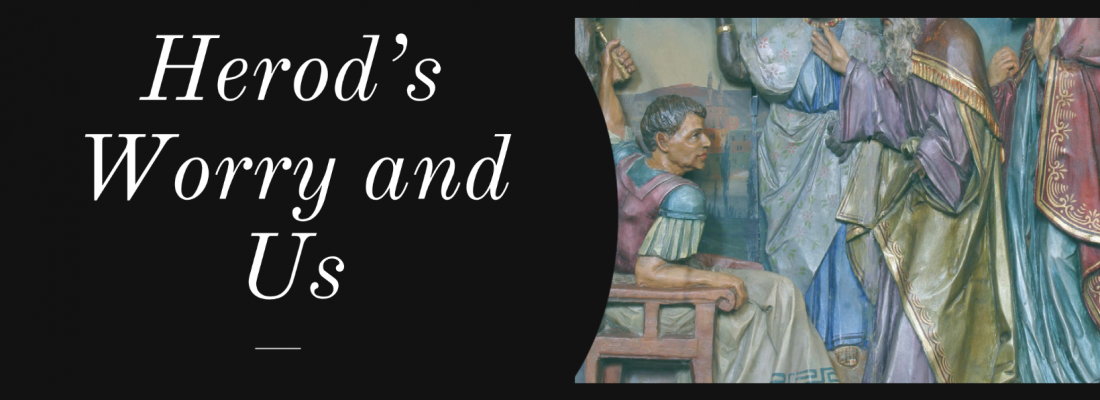Dr. Nathan Leasure
Herod the Great plays the ultimate villain in the Christmas story. He was cruel, blood-thirsty, and by today's diagnoses, certainly struggling with multiple psychiatric issues. While it is almost impossible to sympathize with such a character there are a few personal details that might allow us to understand Herod’s situation.
It was the Romans who put Herod on the throne and designated him King of the Jews. Yet in actuality he was neither a Roman or Jew. His father was an Edomite and his mother was an Arabian princess. He had earned his throne through expert political positioning, having chosen the right side during the Roman invasion of Palestine. Herod saw that Roman victory was inevitable and allied himself with them from the onset. It was a gamble that paid off and the Romans rewarded his loyalty by making him the ruler over the region of Judea.
If he had been Roman, that might have eased his worries; if he had been Jewish, that might have even been better. However, since Herod was neither he actually had no legitimate right to the throne and this led to great insecurity about his position and fear of rivals. Thus, when potential threats appeared he quickly had them assassinated. During the course of his life he had his own wife, Mariannbe, mur-dered along with his mother, Alexandra. Three of his sons also fell by his order and were joined by at least half of the Jewish Sanhedrin. In addition, numerous other perceived rivals including several uncles and cousins were also murdered in cold-blood. Knowing his concerns then, his behavior was quite predictable when the Maji appeared at his palace in search of the recently born King of the Jews.
Yet, as it turns out, Herod was absolutely wrong to worry. By the end of the gospel accounts we discover that Jesus would not have posed a threat to Herod’s crown because He did not have any immediate interest in setting up a literal kingdom. Jesus was concerned with an other worldly, eternal Kingdom. Herod was worried that Jesus would steal his earthly crown. Yet, his worry was in vain.
There is a way in which I was like Herod before coming to Christ. How so? Simply because I believed that Jesus was a threat to my peace and happiness and would certainly bring destructive chaos into my life. Yet, as it turns out, I only understood half the story. It is true that Jesus radically changed my life but instead of bringing destructive chaos, Jesus gave me contentment, peace and joy that had been greatly missing. What he did for me, he can do for you too.
Standing with Jesus may open us to criticism that was previously non-existent but in a magnificent way, He begins to deliver us from being in bondage to what others think- which is far better. We begin to be freed from their condemnation because we have received the ultimate acceptance from the King of kings. Serving Jesus costs us financially because we begin to see ourselves as stewards of the material possessions entrusted to us rather than as owners. However, while serving Jesus costs us materially, we are freed from materialism and greed, consequently finding far greater contentment with less worry. We may lose some friends but we get the ultimate friend who becomes closer than our dearest siblings.
As we enter the season of celebrating the advent of Jesus Christ, I pray the message is clear: God gives far more than he takes and that is exemplified in the gift of his Son. He can be trusted!

